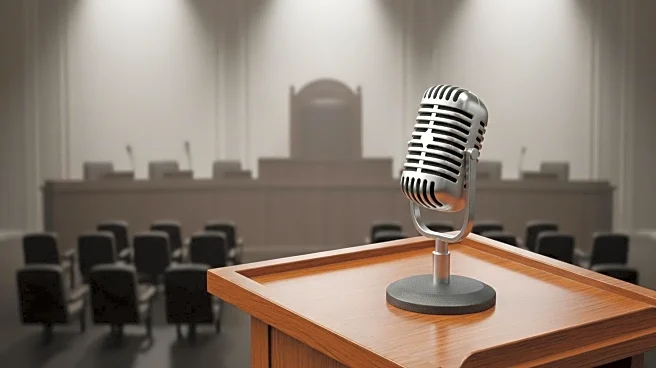What's Happening?
Federal Communications Commission (FCC) Chair Brendan Carr is set to testify before the Senate Commerce Committee following bipartisan criticism over his handling of the suspension of Jimmy Kimmel's late-night show. The controversy arose after Carr suggested potential regulatory action against ABC and its parent company, Disney, which led to Kimmel's show being suspended for a week due to comments made about conservative activist Charlie Kirk. The Senate Commerce Committee, chaired by Sen. Ted Cruz, will oversee the hearing, although a specific date has not been announced. Cruz, a vocal critic of Carr's actions, has expressed concerns about government overreach in regulating speech. The situation has sparked a debate over First Amendment rights and the role of government in media regulation.
Why It's Important?
The upcoming testimony of FCC Chair Brendan Carr is significant as it highlights ongoing tensions between government regulation and media freedom. The incident has raised questions about the extent to which government agencies should influence or control media content, especially in politically sensitive contexts. The bipartisan backlash suggests a rare alignment across party lines on the issue of free speech and government intervention. The outcome of this hearing could have implications for future regulatory actions by the FCC and other government bodies, potentially affecting how media companies operate and how content is managed. Stakeholders in the media industry, as well as advocates for free speech, are closely monitoring the situation.
What's Next?
The Senate Commerce Committee will conduct an oversight hearing where Brendan Carr will be expected to address the concerns raised by lawmakers. This hearing could lead to further scrutiny of the FCC's regulatory practices and possibly result in legislative or policy changes aimed at safeguarding media freedom. Political leaders, media companies, and civil society groups are likely to react based on the outcomes of the hearing, which could influence future regulatory frameworks and the balance between government oversight and media independence.











